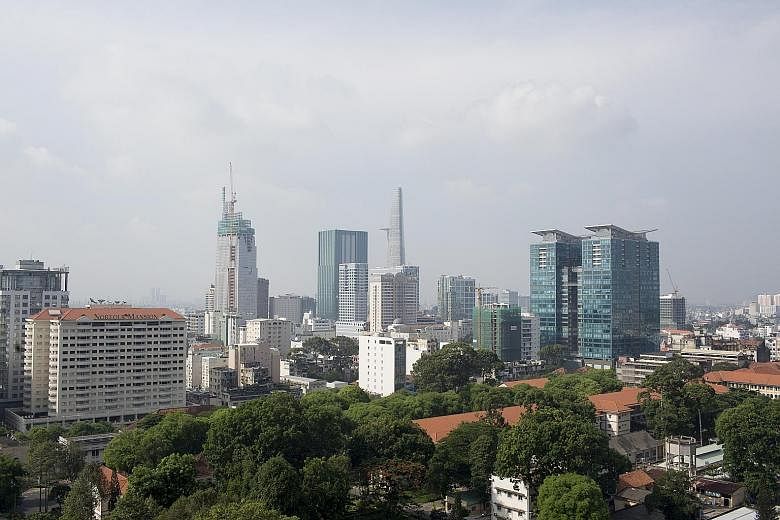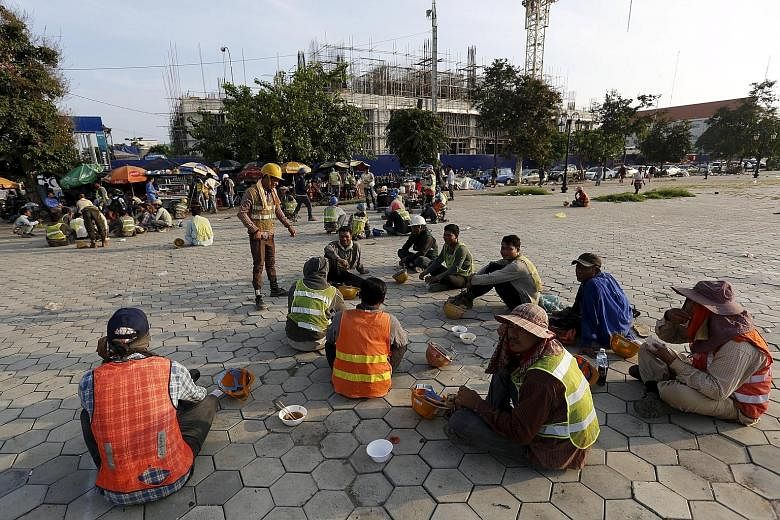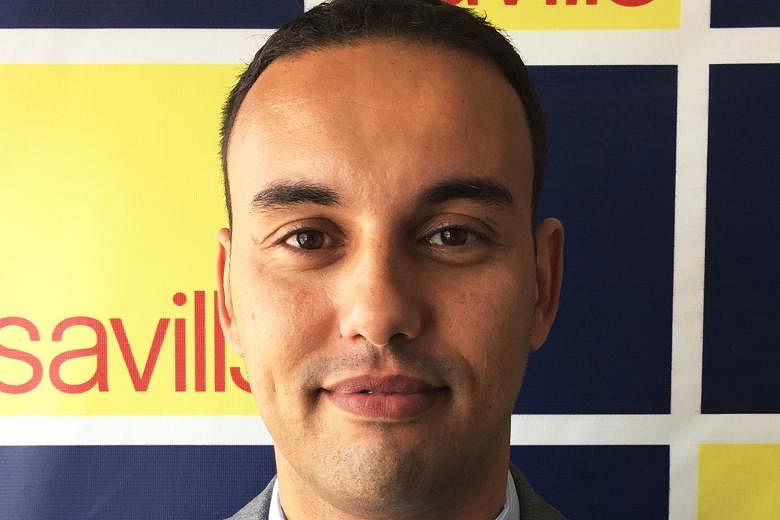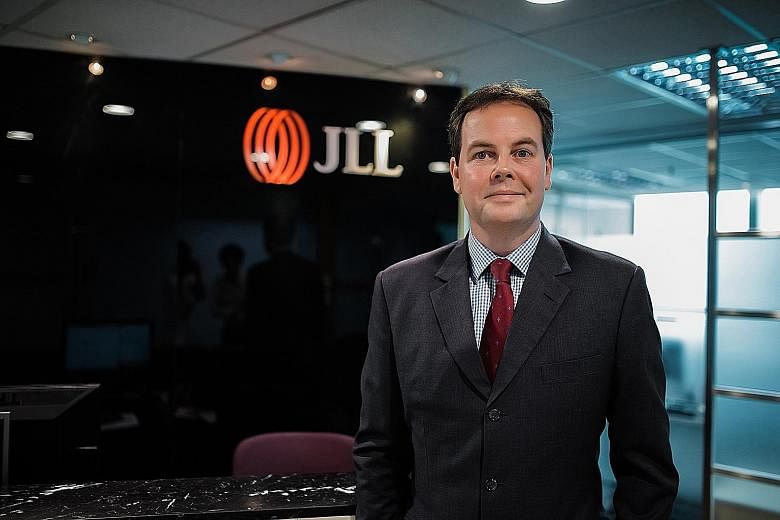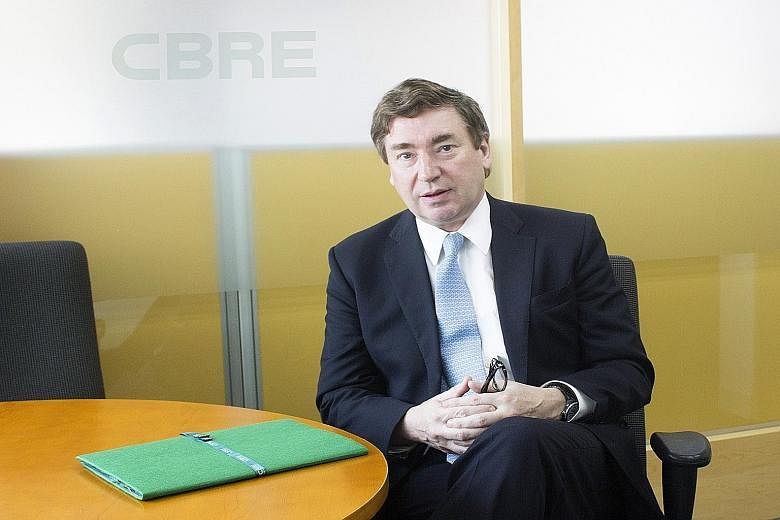Q Why should I buy property in emerging markets?
A Real estate investments in emerging markets are typically seen as investments with higher risks, yet they also come with higher potential returns, consultants say.
Mr Timo Schmidt, head of international sales and leasing at Savills Vietnam, notes that emerging markets "benefit from more attractive capital growth rates than developed ones while still offering increasingly safe investment environments".
"Pricing is typically a fraction of the cost of comparable properties in first-home markets", yielding higher returns on investment as a result.
Developed markets, on the other hand, usually offer low rates of return, says Mr Schmidt.
"A slowdown in economic growth is particularly visible across many developed markets, which can lead to uncertainty in capital growth and yields, compared with the staggering pace of economic growth that countries like Vietnam and Cambodia can achieve," he adds.
Q Is now a good time to start buying property in emerging markets?
A Economic uncertainty has knocked confidence among investors everywhere, but consultants believe that Asia remains the global growth engine and the fastest-developing region in the world.
Vietnam, for example, has performed well in the past year, notes JLL Vietnam country head Stephen Wyatt, adding that it has recently rebounded from a downturn over the past four to five years.
"The stock market is up 12 per cent this year, inflation is stable and interest rates are steady at 8 to 9 per cent," he says. "We are witnessing an increase in positive sentiment and overall confidence."
Q What is the real estate market like in Vietnam?
A Sales and pricing have been picking up steadily since the market bottomed out in the fourth quarter of 2013.
But prices remain affordable, says Mr Wyatt. A typical 70 sq m two-bedroom home within a 10- to 15-minute drive to the central business district in Ho Chi Minh City is about US$1,600 (S$2,250) to US$2,000 per sq m, which amounts to US$112,000 to US$140,000.
"When compared with other major cities within the region, we believe there is considerable upside," he says, adding that investors enjoy returns of 6 to 7 per cent on residential property and 9 to 11 per cent on commercial real estate.
But this depends on the property's location, age and quality of building and covenant strength of tenants.
Mr Thai Quang Trung, deputy head of institutional research at Maybank Kim Eng Vietnam, says it has become much easier for foreigners to buy properties.
It relaxed its laws in July to allow foreigners with valid residential visas and foreign companies to own property. Previously, only those married to Vietnamese, or foreigners seen as contributing to national development were allowed to do so.
"This should provide a sustainable demand flow to support the property market," says Mr Thai.
That home-grown property giants Keppel Land and CapitaLand both have a presence in Vietnam should also serve as a reassurance for investors, he adds.
Q How easy is it to invest in property in Cambodia?
A When it comes to high-rise condominiums and low-rise residential terrace houses, Cambodia is no longer in its infancy, says Mr Schmidt.
He notes that an additional 12.9 million sq ft of development are set to enter the market by 2018 as the pace of construction is "booming".
Projects can fetch a net yield of about 5 to 8 per cent.
"Some notable projects from foreign developers, including those from Singapore and China, have gained strong presence and support from both local and foreign buyers for their modern and trendy design, as well as city centre location," he notes.
The burgeoning market is also a welcoming one for investors, says Mr Marc Townsend, CBRE managing director for Vietnam and Cambodia.
The 2010 Condominium Law, for instance, allows foreigners to own condominium apartments through a freehold strata title tenure, although it is restricted to 70 per cent of the total units within an individual building, from the first floor up.
Q What are the typical risks involved when it comes to investing in property overseas?
A Additional risks come with real estate investments in a foreign country compared with those made locally.
They include foreign exchange and political risks, notes Ms Tok Geok Peng, secured lending executive director at DBS Bank.
"If the currency of the country that your property is in depreciates against the Singdollar, the gains made by your investment will be eroded even if your property value rises," she says.
"Your investments may also be affected by any political instability or policy changes in the country you purchase property in."
Q How much of my portfolio should be invested in emerging market properties, and why?
A Mr Thai believes that investors should allocate their capital according to their risk appetite.
"Emerging markets real estate could be considered from an institutional investors' point of view, not only because of global uncertainties but also because of diversification benefits," he says.
"Direct real estate investment opportunities are bulky, unique and require long holding periods. They should, therefore, be judged based on their own merits as and when they become available, regardless of the cycle the local property market is in.
"Retail investors, on the other hand, should consider both securities and direct real estate... to balance their risk profile."
Q What do I need to do before buying into a project in an emerging market? How can I make sure my investment is secure?
A Doing your homework is key.
Investors should have a good understanding of the location of the property they are buying, its employment and rental outlook and its regulations or restrictions on foreign ownership, says Ms Tok.
Mr Wyatt's advice: "If you are looking to buy residential property, always consider developers with a strong track record.
"And as with any real estate investment, location will always be an important factor."
Q How easy is it to get money out? When should I make an exit?
A One golden rule of investing overseas is to follow closely the correct procedures imposed by the local government, be it for bringing funds into the country or fulfilling the necessary tax requirements when selling the property.
Mr Wyatt says having an exit strategy is "crucial" for any investment.
"If the investment is part of a diversified portfolio and will form part of a pension plan, then usually a medium- to long-term hold strategy should be considered," he says.
"If the investor has some spare cash and wants to explore investing in an emerging market, then a short or medium hold may be more suitable."
At the same time, investors, as a safeguard, should always "stay liquid", says Mr Townsend.
"You don't want to be stuck in a situation where you need cash but you can't get it out of an investment."
Q How do I get a loan?
A Financing options may be limited as not all banks finance overseas property purchases, particularly those in emerging markets, notes Ms Tok.
But Mr Wyatt points out that the list of international banks with a presence in Vietnam, for instance, has grown over the past few years, with names such as HSBC, ANZ, Standard Chartered, Maybank, CBA, Deutsche Bank, Bank of China, Natixis and Mizuho Bank.
"As the market continues to show signs of improvement, the difficulty is finding good-quality products. Sourcing for loans is the easier part of the equation," he says.
